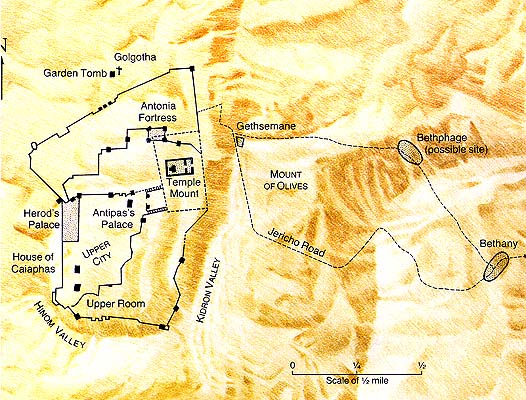Monday, April 21s, 2014
9am
“Now a certain man was ill, Lazarus of Bethany, the village of Mary and her sister Martha.” 11.1
Lazarus
Lazarus is the Latin form of Eleazar which means “God is my help”.
Lazaros in ancient Greek, Lazarus is late latin.
There are two people named Lazarus in the bible. Mary and Martha’s brother here in John 11, and the poor man with Abraham in Luke 16.
There is a medical term called the Lazarus syndrome where people, who have been declared dead, seem to spontaneously come back to life. There are a number of recorded instances of this phenomena here.
Bethany
Bethany wiki
Simon the Leper is also from Bethany.
Bethany is called al-Eizariya (arabic) today, which means, Place of Lazarus.
the etymology and meaning of Bethany are disputed, with various proposals.
Bethany is located on the southeast slope of the mt of olives
Bethany was approximately 2 miles/3.2 km from Jerusalem
There are very little details regarding the nature of the illness. We don’t know how long Lazarus was ill. We don’t know the symptoms. It’s possible his illness was very aggressive given the time frame between the petition to Jesus for help and his death.
“It was Mary who anointed the Lord with ointment and wiped his feet with her hair, whose brother Lazarus was ill.” 11.2
Mary anoints the feet of Jesus in John 12. This is the only instance in the Bible I can think of where someone is described by an event that occurs future to the present text. There are two recorded occurrences of Jesus being anointed with perfume (and tears). Mary in this text, and an unnamed (sinful) woman in Luke 7.
Mary’s role in verse 2 seems to be a reference for the identity of her brother Lazarus. This is the first (and only) introduction of Lazarus in the bible, but Mary and Martha are also recorded in Luke 10 from an event earlier in the life of Jesus. Perhaps Mary (and Martha?) were better known than their brother up until this point. I would imagine Lazarus would have been much better known himself after he was raised from the dead.
“So the sisters sent to him, saying, “Lord, he whom you love is ill.'” 11.3
It is upon this verse that some people believe Lazarus was the other of the Gospel which has traditionally been attributed to John.
John 13.23
“One of his disciples, whom Jesus loved, was reclining at table at Jesus’ side…”
John 19.26
“When Jesus saw his mother and the disciple whom he loved standing nearby, he said to his mother, “Woman, behold, your son!”
John 21.20-24
“Peter turned and saw the disciple whom Jesus loved following them, the one who also had leaned back against him during the supper and had said, “Lord, who is it that is going to betray you?” When Peter saw him, he said to Jesus, “Lord, what about this man?” Jesus said to him, “If it is my will that he remain until I come, what is that to you? You follow me!” So the saying spread abroad among the brothers that this disciple was not to die; yet Jesus did not say to him that he was not to die, but, “If it is my will that he remain until I come, what is that to you?” This is the disciple who is bearing witness about these things, and who has written these things, and we know that his testimony is true.”
The challenge to the proposal that Lazarus was the ‘beloved disciple” and the one that wrote the Book of John is that the ‘beloved disciple’ was one of the 12 at the Last Supper. Lazarus was not one of those 12 and therefore it seems reasonable to conclude he was not the author. Nonetheless, Lazarus does seem the recipient of the special designation “he whom you love”. It would suggest a history between Jesus and Lazarus which has not been recorded.
It’s interesting that the sisters include that description (he whom you love) in their petition to Jesus. It’s almost as if they are reminding Jesus of the special relationship he has with their family and with Lazarus in particular. The reminder seems also to carry an implication. If you do in fact love our brother…then you’ll get here immediately and heal this sickness.
stop: 10am

